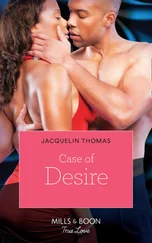“One more thing,” Frank said. “Do you know a woman named Miriam Castle?”
Curtis looked surprised to hear her name. “Yes. Why?”
“She mentioned to me that she sometimes gets work for local artists.”
“Yes, she does.”
“Did she get any from you?”
“You mean to work on the restoration?”
“Yes.”
“She tried to get some work for Derek Linton,” Curtis said, “but he wouldn’t work on the project. It was some objection, something about how it glorifies war.”
“Anyone else?”
“Well, we have about three local artists who are working on the Cyclorama,” Curtis said. “By local, do you mean artists who live in Atlanta?”
“Yes.”
“That would narrow it down to two,” Curtis said. “All the rest are imported.”
“But you have two from the city?”
“Yes.”
“And did Miriam Castle recommend them?”
Curtis thought about it. “No, I don’t think so. She was very keen on Linton, but I don’t think she brought up anyone else for this particular project.”
“These two,” Frank said, “who are they?”
Curtis pulled a sheet of paper from his desk. “Everyone who works on the project is listed here.” He handed Frank the paper. “I hope this helps you.”
Frank’s eyes moved down the column of names and addresses. Many were from out of state, specialists brought in from Washington, Boston and New York. Only six were local artists. One lived in Doraville, one in Marietta, and yet another in Hapeville, a southern suburb of Atlanta. Two of them lived in the city itself. And one of these lived on Mercer Place.
Frank looked up from the paper. “Who is Vincent Toffler?”
“He worked mostly on touch-ups,” Curtis said.
“Worked? He’s not here anymore?”
“His part of the project was finished about a week ago,” Curtis said.
“Is this Mercer Place address where he still lives?”
“As far as I know.”
Frank wrote the address down in his notebook. “How well do you know him?”
“Not well at all.”
“Do you have a picture of him?”
“In his personnel file.”
“Would you mind if I took it with me?”
“Not at all,” Curtis said. “He’s finished here, anyway.” He walked to a single, freestanding file cabinet and pulled out a picture of Toffler. It showed a tall, lean young man with curly blond hair. He was dressed in jeans and a flannel shirt. There was a paintbrush in his hand.
“Thanks,” Frank said as he pocketed the photograph.
“My pleasure, Mr. Clemons,” Curtis said. “Here, let me show you out.”
Frank turned his head out toward the front of the building.
“No, no,” Curtis said quickly. “We’ll use the rear entrance.” He took Frank’s elbow and tugged him gently to the right.
They went out the side door on the north side of the building. The drop cloths were still piled by the single cement step, and as Frank glanced toward the parking area, he realized that Angelica had parked in an almost direct line of vision from the door.
“If one of your artists were working late,” he said to Curtis, “would he use this door to go in and out?”
“Yes,” Curtis said, “the front is locked after five.” He glanced about the park, then up at the high gray wall of the Cyclorama. “This restoration is going to benefit this whole area of the city,” he said.
“It could use it,” Frank said, as he started walking toward his car.
“This neighborhood has quite a history, did you know that?” Curtis asked.
Frank shook his head as he walked on.
“Much of it was a burial ground,” Curtis said. “We learned that during the excavations.”
“What excavations?”
“When the first piping was put in,” Curtis said. “That’s when certain areas were uncovered. Workmen found a great many bones.” He nodded in the general vicinity of Waldo Street. “Especially over there, in the area beyond Boulevard.” Curtis’ eyes darkened. “The workmen reported it to the police. They weren’t archeologists and anthropologists, after all. It was an odd find. So many bones. Human bones. “ His eyes shifted back to Frank. “All female. All from teenage girls.”
Frank began to feel dizzy.
“So rather than an ordinary burial ground,” Curtis went on, “we think it was probably a place of sacrifice. There was no evidence of trauma, no fractured skulls, for example. We think their throats were cut.”
In his mind, Frank could see the young girls as they flailed about on the ground, bleeding slowly to death. He could feel the blade as it sliced through their long brown throats, and the wave of warm blood as it washed down their naked chests. The high wail that came from them seemed to struggle upward into the air around him.
26
Frank dropped the photograph on Caleb’s desk. “His name is Vincent Toffler.”
Caleb glanced at the photograph. “Okay.” He looked up. “Want to tell me the rest?”
“The night Angelica went for that ride with the Doyle kid, she stopped at the Cyclorama. I always thought she was waiting to see somebody, but I was wrong. I think she was waiting to be seen by somebody.”
Caleb tapped the picture with his finger. “By this guy?”
“Yes.”
“Go ahead.”
“After she left the Cyclorama, she headed for this particular street, Mercer Place. She drove up and down it a few times. Again, like she was trying to be seen.”
“And this guy lives on Mercer?” Caleb asked.
“Yes,” Frank said. “He works at the Cyclorama and he lives on Mercer Place. From where Angelica parked, she could see a little door at the back of the building.”
“Slow down, Frank,” Caleb said. “Which building?”
“The Cyclorama,” Frank went on methodically. “This door is the artists’ entrance to the building, the one Toffler would have used either to go in or come out of the building.”
Caleb nodded slowly. “So we’ve got him at Cyclorama and on Mercer Place.” He smiled indulgently. “It’s good, Frank, but it’s circumstantial.”
“And one other thing,” Frank added, “those galleries Angelica went to near Grant Park, there are three of them on the street. She was seen in two of the three. The one she wasn’t seen in has Toffler’s work hanging in it.”
Caleb scratched his cheek thoughtfully. “It’s still circumstantial, but it’s worth checking out. “ He stood up. “It’ll be a treat. I haven’t seen the Cyclorama in years.”
“He’s not there anymore,” Frank said. “He finished his job there a week ago.”
“So it’s Mercer Place then,” Caleb said wearily.
“Yeah.”
Caleb drew in a slow, despairing breath. “Dear God, I hate to go get a guy at home.”
They pulled up to the house on Mercer Place a few minutes later. It was a small, wood frame structure that looked as if it had been fully restored. The white, freshly painted exterior gleamed brightly in the late-morning sun, but the interior was utterly dark, and the adjoining driveway was empty.
“I don’t see any movement in there,” Caleb said as he eyed the front of the house. “Looks like nobody’s home.”
“We don’t have enough for a warrant,” Frank said.
Caleb looked at him. “Can you dig up anything else right quick?”
“No.”
“Just have to wait till he comes home then.”
“We could look around outside,” Frank said.
“Okay,” Caleb said. “But let’s make sure nobody’s there before we go poking around in the yard.”
The new wooden steps did not creak at all as the two of them walked up on the front porch.
“This guy’s really fixed this place up,” Caleb said as he took up his position at the left side of the door. He paused a moment, then knocked.
Читать дальше












